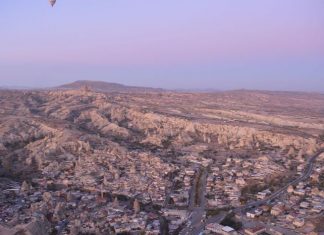For, as all the inhabitants of Philippopolis were Manichaeans except a few, they tyrannized over the Christians there and plundered their goods, caring little or naught for the envoys sent by the Emperor. They increased in numbers until all the inhabitants around Philippopolis were heretics. Then another brackish stream of Armenians joined them and yet another from the most polluted sources of James. And thus, metaphorically speaking, it was a meeting-place of all evils; for the rest disagreed indeed with the Manichaeans in doctrines, but agreed with them in disaffection.
Wrestlings with the heretics
But my father, the Emperor, arrayed his long military experience against them too and subdued some without fighting and others he reduced to slavery by fighting. How much that valiant man did and endured over this truly apostolic work! For what reason could anyone forbear to praise him? perhaps because he was negligent in his military duties? -nay, he filled the East and the West with his exploits as general. Or is it because he was indifferent to argumentation? -nay again, for he had studied the Holy Writings more than anybody else in order to sharpen his tongue for wrestlings with the heretics.
He alone commingled arms and arguments, and conquered the barbarians with his arms, and subdued the impious by his arguments; as in this present instance he engaged the Manichaeans in a contest that was apostolic rather than military. I for my part should call him ‘the thirteenth apostle.’ Although some ascribe this glory to Constantine the Great; yet I am of opinion that Alexius should be ranked equal to the Emperor Constantine or, to prevent contentiousness, let him be placed second to Constantine both as apostle and Emperor.
For, as we were saying above, he went to Philippopolis for the reasons given and, as the Comans had not yet appeared, he made the secondary purpose of his journey more important than his actual task and began turning the Manichaeans from their brackish religion and instilling into them the sweet doctrines of the Church. So from the morning till afternoon or even evening, and sometimes till the second or third watch of the night he would send for them and teach them the orthodox faith and refute their distorted heresies. Present with him were Eustratius, the bishop of Nicaea, a man of wide knowledge of religious and secular literature and pluming himself on dialectics more than those who frequent the Stoa and Academy, and also the incumbent of the archiepiscopal throne of Phillippopolis. In addition to all the others and in preference to them the Emperor had as his coadjutor my Caesar, Nicephonis, whom he had trained in the study of the sacred books.
Read More about Turks Franks Cumans and Manichaeans part 6








